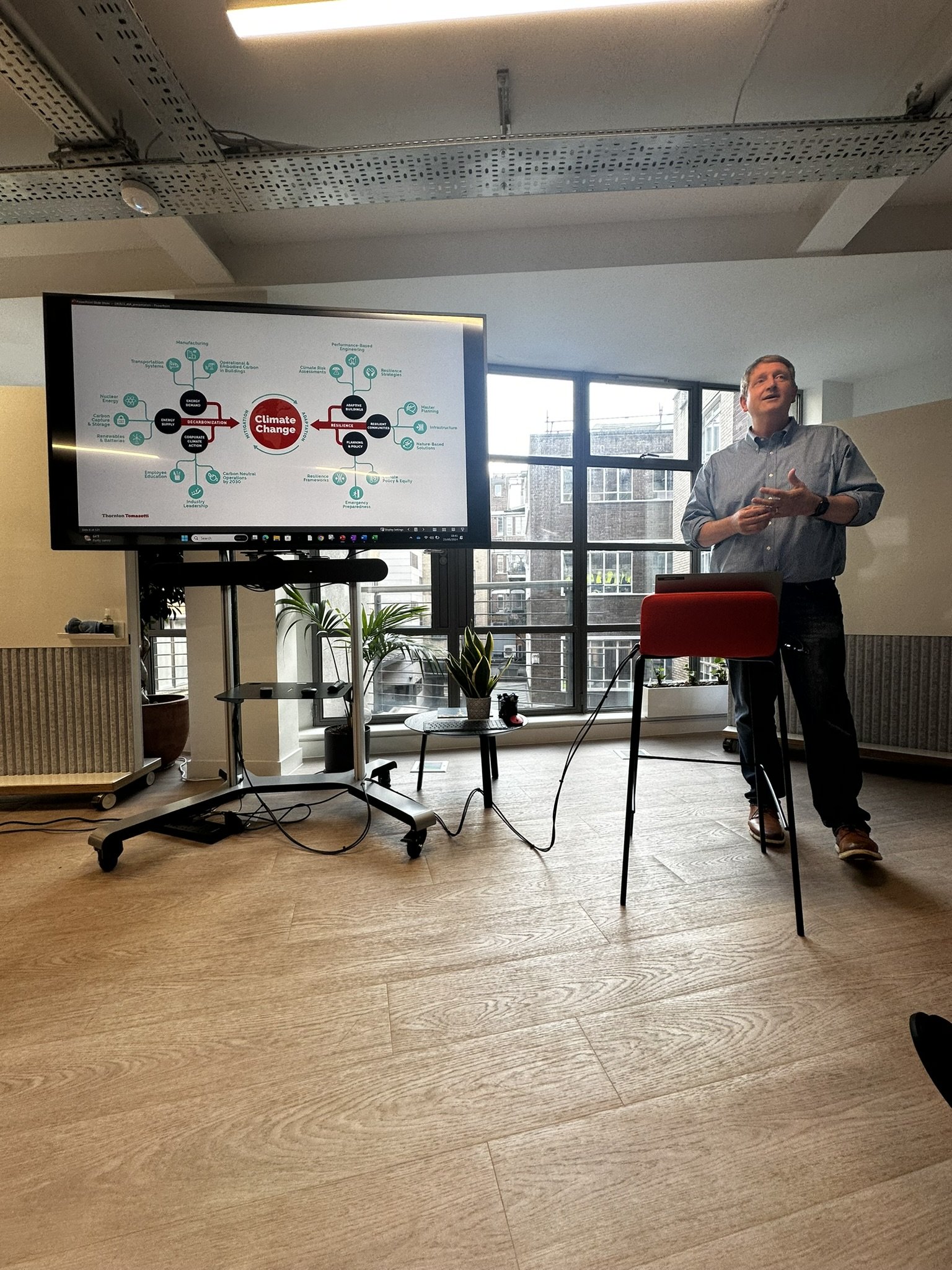Forging a Sustainable & Resilient Future with Thornton Tomasetti & AIA UK: Leadership in Climate Action and R&D
Fiona Mckay
On May 23rd members and guests gathered at Thornton Tomasetti’s London office to participate in a series of short talks provided by T.T. 's staff themed ‘Forging a Sustainable & Resilient Future’.
Thornton Tomasetti is a worldwide consultancy providing a host of services, software platforms and consultancy services informing architects on sustainability, structural engineering, facade engineering, acoustics, security disciplines to name only a few. The event was chaired by Gunnar Hubbard, Principal who advances the firm's climate action initiatives within their Sustainability and Resilience team. Gunnar also served on the 2024 AIA UK Excellence in Design Awards jury.
Each of the short presentations highlighted one aspect of their company-wide approach to climate action, and how they advance innovation through research and development activities as well as development of tools and methodologies to support the AEC industry.
Presentations were shared, along with case studies by Gunnar Hubbard, Jeroen Janssen, Duncan Cox, Simon Cross, Harry Crofton, and Maria Valentini Sarakinioti.
The talks were followed by a question and answer session which further explored not only the real-world application for the ideas presented but also how they might be further developed or refined to provide more use for architects and designers on future projects.
The evening concluded with a short drinks and canapes providing time for further discussion, socialising, and networking.
We thank Thornton Tomasetti for hosting this educational and insightful evening.
Written by Taylor Rogers, AIA













